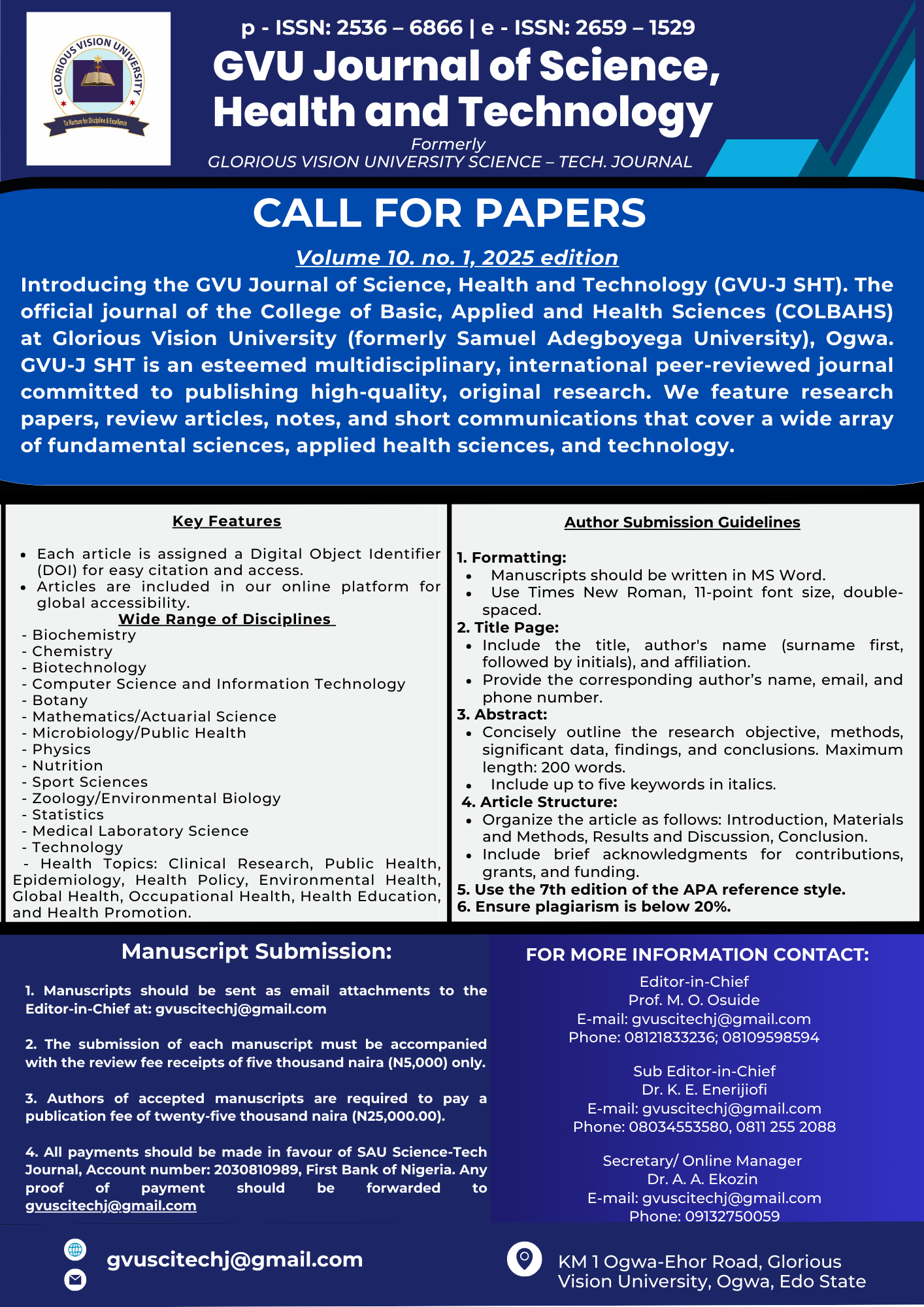Antibacterial Activities of Blowfly (Lucilla sericata) and Housefly (Musca domestica) Maggots Extract on Some Selected Isolates
DOI:
https://doi.org/10.5281/zenodo.13290072Keywords:
Antimicrobial resistance, Maggot extracts, Antibacterial activity, Minimum inhibitory concentration (MIC), Staphylococcus aureusAbstract
Antimicrobial substances have played a pivotal role in global health since the discovery of penicillin in 1941. However, the rise of antimicrobial resistance poses a significant threat to public health. This study focuses on the potential antibacterial properties of maggot extracts from Lucilia sericata and Musca domestica on selected bacterial isolates. The study was conducted in the Federal Capital Territory, Abuja, Nigeria, with maggot collection, extraction, and antibacterial assays carried out through agar-well diffusion methods. The results indicate dose-dependent antibacterial activity, with the aqueous extract showing the highest efficacy. The minimum inhibitory concentrations were determined, highlighting varying sensitivities among tested bacteria. The findings suggest the potential of maggot extracts as alternative antimicrobial agents, emphasizing their efficacy against Staphylococcus aureus. This research provides a scientific basis for considering maggot extracts in the development of new therapies, particularly for infections caused by antibiotic-resistant bacteria.




